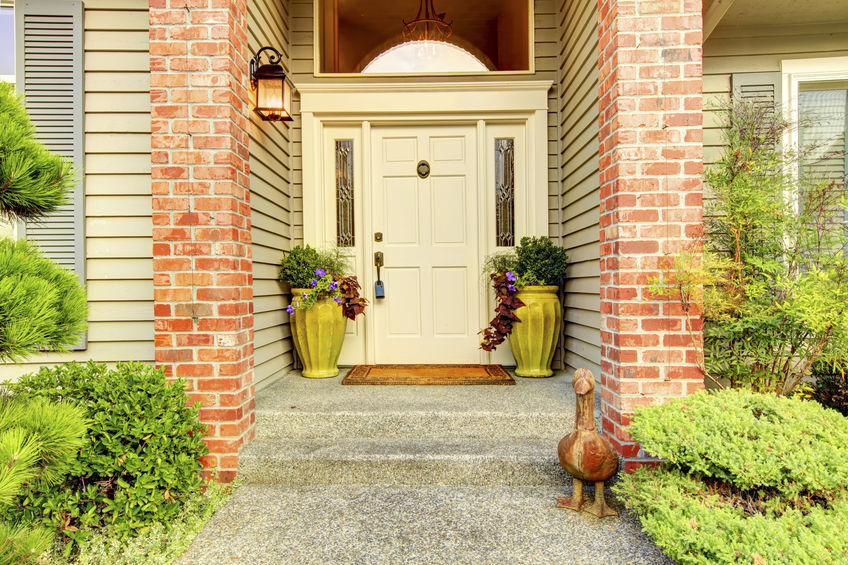How To Prevent Accidents
Are you expecting guests? Perhaps a visit from Mom and Dad? Or are you getting ready to welcome over some of your kids' friends?
Before anyone crosses your threshold, consider this sobering statistic: Unintentional injury sends one of every four children to the hospital each year.
Seniors and guests who are unfamiliar with your home's terrain are also at risk for accidents. You needn't turn your home into a fortress, but there are some measures you'll want to take to minimize the chances of injury.
Here's how to prevent accidents and secure potential problem areas in your home.
How To Prevent Accidents on Stairs and Windows
Make sure all walkways and stairs are clear of debris and clutter and are well lit. To prevent tots from toppling down stairs, gates that lock from banister to wall are a must.
Tie up drapery and miniblind cords; they invite attention and pose a tripping or strangulation hazard for children.
Remove doors not used for privacy; they can catch little fingers. Place stickers or colored tape on sliding glass doors to keep people from crashing into them.
Make sure doors leading to hazardous rooms, such as the garage or cellar, and those leading outdoors have interior locks installed above a child's reach to prevent little ones from wandering about.
Consider replacing interior doorknobs with lever-type handles. They're easier for kids and for those whose grip is impaired.
How To Prevent Accidents - Living Area Safety
The living room and the family room are the natural gathering areas in any home. Look carefully around these rooms for any item within reach that a toddler could knock off its perch.
If you have a wobbly bookcase, fasten it securely to the wall so that a curious climber can't pull it down. Remove all furniture with sharp corners or other protrusions, or attach foam padding to the pointed parts.
Make houseplants inaccessible to babies: Some plants are poisonous, and all have leaves that can pose a choking hazard.
How to Prevent Accidents in the Kitchen and Bath
Since the kitchen houses a variety of sharp objects, chemicals, and choking hazards, you'll need to be especially vigilant here.
In both the kitchen and bathroom, use childproof locks to secure cabinets with cleaners inside. Do the same for drawers containing sharp tools.
Stow trash containers in a locked cabinet. If you have a gas stove, cover the knobs with inexpensive plastic sheaths, so only you can turn on the gas.
Move refrigerator magnets out of a child's reach. If one of these breaks, its various parts could pose a choking hazard.
The bathroom is rife with danger. You can stop accidents before they happen by placing a non-slip mat on the floor of the tub or shower.
Pad the bathtub spout with an insulating cover that protects against bruising and scalding. Always keep razors, blow-dryers, and other electric appliances unplugged when they're not being used.
Clear everything from around the bathtub. Close the toilet lid and the bathroom door after each use. Even an inch of water is enough to drown a small child. Finally, set your hot-water heater to a temperature no higher than 120 degrees F (49C).
If small children are only occasional visitors to your home before they arrive, focus on securing a single room for them to use. Remember, however, that there is no substitute for adult supervision.
- Clean Home
- Safe at Home
- How to Prevent Accidents





















